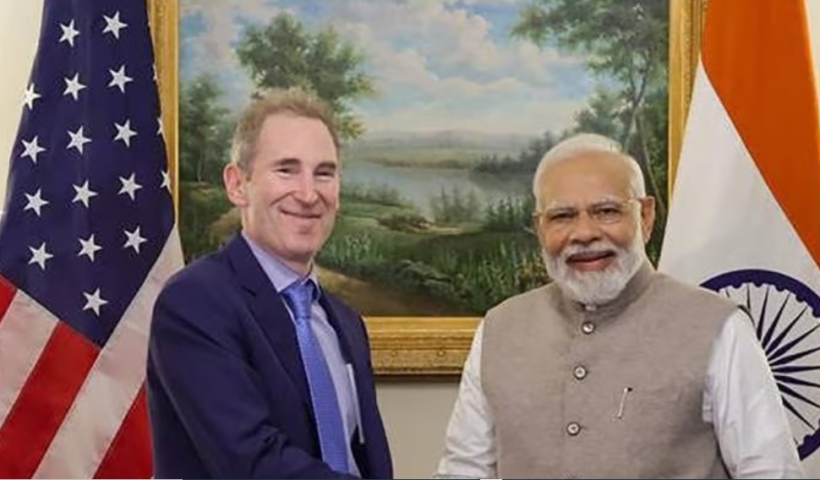As the e-commerce giant strengthens its commitment to one of the largest technological marketplaces in the world, Amazon will more than double its investment in India to $26 billion by 2030, according to its chief executive.
Andy Jassy announced on Friday during his conversation with Indian Prime Minister Narendra Modi that the largest e-commerce firm in the world will invest an additional $15 billion over the following seven years – in addition to an original $11 billion – to improve numerous sectors in South Asia’s largest economy.
According to Mr. Jessy on Twitter, the “productive meeting” covered “Amazon’s commitment to invest $26 billion in India by 2030; collaborating on how we will support start-ups, create jobs, enable exports, and empower people as well as small enterprises to compete globally”.
Seattle-based Regarding this, Amazon has not made any public statements.
India is a technological hub, where businesspeople profit from an estimated population of more than 1.4 billion people who depend on sophisticated digital services every day.
According to figures from the India Brand Equity Foundation, India’s exports of manufacturing in fiscal year 2022 reached a record-breaking $418 billion, an increase of more than 40% over the $90 billion recorded in the prior year.According to the IBEF, New Delhi anticipates that the electronics manufacturing sector would be worth $300 billion by 2030.
Apple built its first retail locations in the nation in April, aiming to capitalize on a retail sector with significant room for expansion and a strong industrial sector.
That comes after Apple began producing the iPhone 14 in Chennai, moving a portion of its production there from China and giving the Modi administration’s Make in India drive a boost.
Earlier this year, US retailer Walmart, Amazon’s main rival in India, stated that it will invest $2.5 billion in the country to take advantage of the burgeoning retail and e-commerce industries there.
In a meeting with Prime Minister Modi earlier this month, Sam Altman, the CEO of OpenAI, the company that developed ChatGPT, expressed his confidence that artificial intelligence will play a significant role in India’s technology and economic sectors.
With 272,732 companies recognized by the government of India’s Startup India initiative, startups are also a significant contributor to the nation’s technological engine.
In order to accommodate rising customer demand for cloud services, Amazon Web Services, the firm’s cloud computing division, announced in May that it would invest $12.7 billion in cloud infrastructure in India by 2030.
The investment, which is expected to boost India’s GDP by $23.3 billion by 2030, is a continuation of AWS’s previous $3.7 billion investment between 2016 and 2022, bringing the US company’s overall investment in India to $16.4 billion by that time.
Mr. Modi’s trip to Washington was successful since it led to several investment agreements. One of these commitments comes from US semiconductor maker Micron, which stated that it will spend up to $825 million to set up its first assembly facility in the nation.


